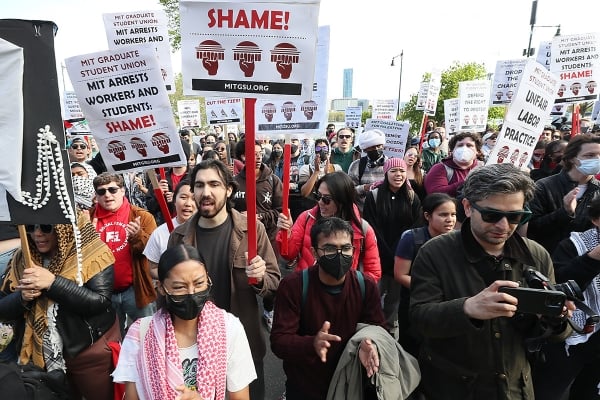Higher education workers, like many other professionals, often belong to unions in order to advocate for their rights and address workplace issues. However, recent debates have emerged regarding whether these workers should be required to pay dues to unions that criticize Israel.
The issue of unions taking political stances on international issues, particularly regarding the Israel-Palestine conflict, has become increasingly controversial in recent years. Some higher education workers who belong to unions may disagree with their union’s stance on Israel and feel that their dues are being used to support views that they do not agree with.
On one hand, unions play a vital role in advocating for workers’ rights, including higher wages, better working conditions, and job security. By requiring all members to pay dues, unions are able to effectively represent their members and negotiate with employers on their behalf. In this sense, it is argued that it is important for all workers to contribute financially in order to benefit from the collective bargaining power of the union.
On the other hand, some argue that workers should not be forced to financially support causes or political perspectives that they do not agree with. This is particularly relevant when it comes to international issues like the Israel-Palestine conflict, which are highly sensitive and divisive. Workers may feel that their union’s stance on such issues does not reflect their own beliefs, and therefore should not be funded by their dues.
Ultimately, the issue of whether higher education workers should be required to pay dues to unions that criticize Israel is a complex and nuanced one. It raises questions about freedom of speech, political expression, and the right to dissent within a union. While unions have the right to take political stances on various issues, they should also be mindful of the diversity of views among their members and ensure that all voices are heard and respected.
In conclusion, the debate around whether higher education workers should have to pay dues to unions that criticize Israel is a challenging one. While unions play a crucial role in advocating for workers’ rights, they should also be sensitive to the diverse opinions of their members and strive to create an inclusive and respectful environment for all. Workers should have the opportunity to voice their concerns and engage in dialogue with their union about issues that are important to them, including those related to international politics. Ultimately, finding a balance between supporting collective bargaining power and respecting individual beliefs is essential in addressing this complex issue.



